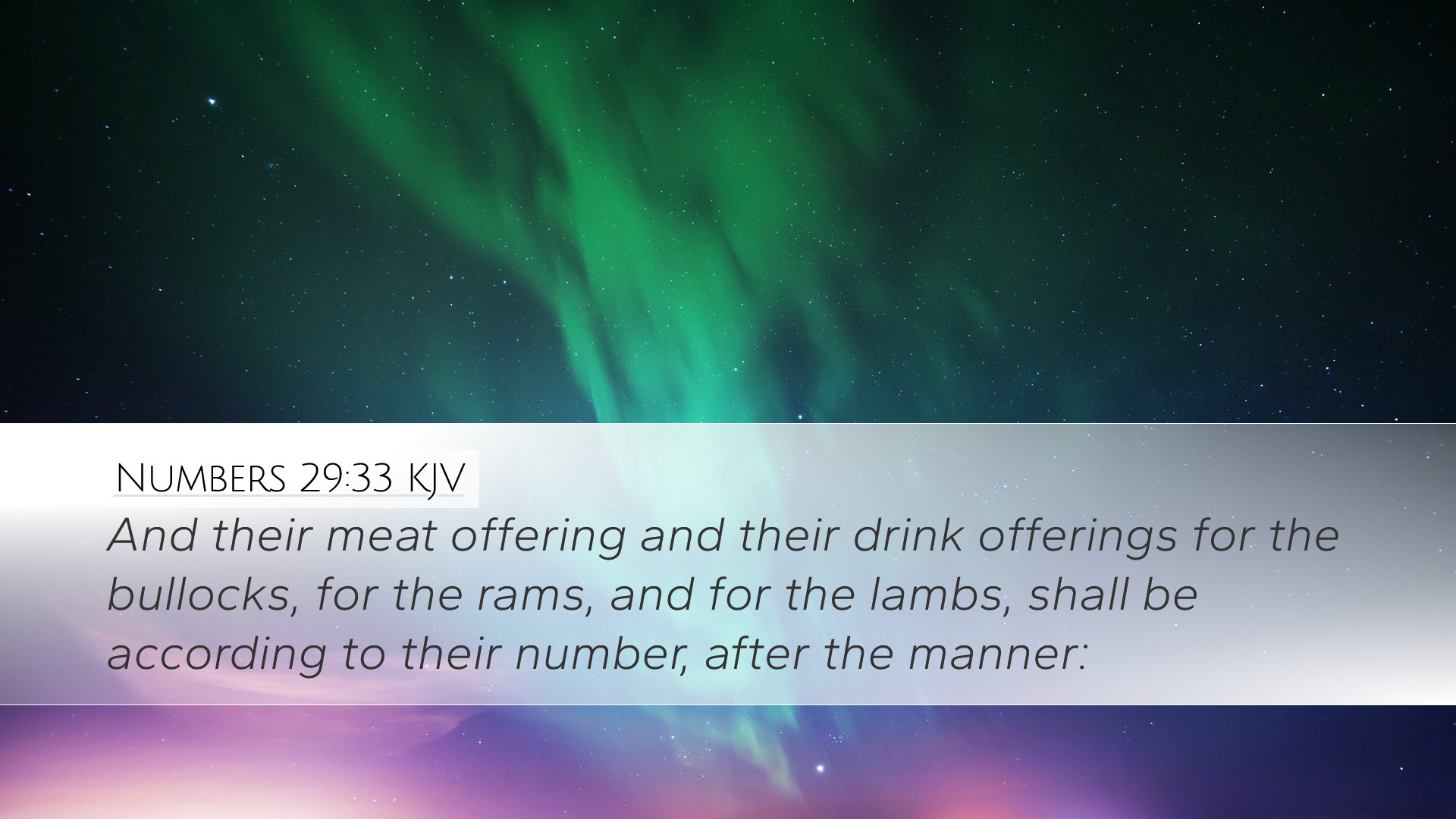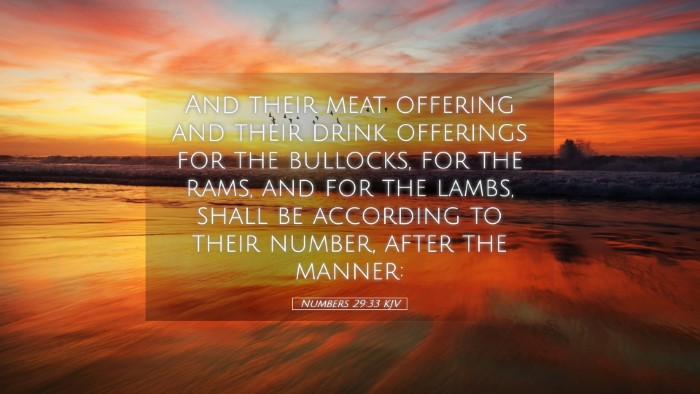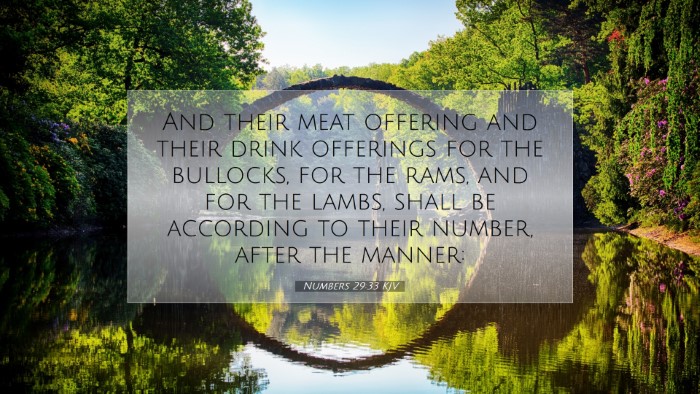Commentary on Numbers 29:33
Verse (Numbers 29:33): "And one kid of the goats for a sin offering; beside the continual burnt offering, and his meat offering, and his drink offering."
Introduction
The verse in Numbers 29:33 comes from a section detailing the various offerings required during the Feast of Tabernacles, highlighting the intricate nature of the sacrificial system in Israelite worship. At the heart of this scripture lies significant theological implications regarding atonement, worship, and the nature of the offerings. Renowned public domain commentaries by esteemed scholars such as Matthew Henry, Albert Barnes, and Adam Clarke offer a rich tapestry of insights to illuminate this text.
Theological Significance
This verse underscores the necessity of atonement for sin within the sacrificial system established by God. The 'kid of the goats' serves as a sin offering, a crucial element in expiating the guilt of the people. This highlights God's holiness and righteousness, which cannot overlook sin. Matthew Henry emphasizes that all offerings presented to God must come with an acknowledgment of human guilt and the need for divine mercy.
Value of the Offerings
Albert Barnes remarks that the inclusion of the sin offering emphasizes the collective responsibility of the people of Israel. Each offering serves to restore the relationship between God and His people, illustrating that worship entails both praise and contrition. The various offerings mentioned—burnt, meat, and drink—symbolize a holistic approach to worship, integrating various elements of life and devotion.
Detailed Analysis
- Kid of the Goats: Adam Clarke elaborates on the significance of the goat in the sin offering. In the law of Moses, goats were frequently associated with substitutionary atonement, representing an innocent life sacrificed for the guilty. This typology ultimately leads to the understanding of Christ as the ultimate sin offering.
- Continual Burnt Offering: The continual burnt offering complements the sin offering and signifies continual devotion to God. According to Barnes, this illustrates a need for perpetual consecration to God, which must accompany any act of seeking atonement.
- Meat and Drink Offerings: The 'meat offering' signifies the dedication of labor and resources to God, while 'drink offerings' symbolize joy in worship. Together they express the fullness of life offered to God, aligning with the holistic worship demanded by the Lord.
Cultural Context
Understanding the cultural backdrop of ancient Israel is crucial in interpreting this verse. The Israelites were surrounded by nations with diverse worship practices, but the Lord’s command for specific offerings set them apart. Matthew Henry notes that the meticulous instructions for sacrifices reflect a God who desires genuine worship from His people, contrasting with the often superficial practices of surrounding cultures.
Practical Applications
This verse encourages modern believers to approach God with a heart of repentance and gratitude. Acknowledging human sinfulness while rejoicing in God’s provisions fosters a balanced Christian life. Believers are called to offer themselves continually to God, echoing the principles of burnt, meat, and drink offerings in their daily lives.
Conclusion
Numbers 29:33 encapsulates profound truths about atonement, worship, and the nature of offerings within the ancient Israelite community. Through the insights garnered from Matthew Henry, Albert Barnes, and Adam Clarke, it becomes clear that every facet of worship holds significance in the believer's relationship with God. As such, this verse serves as a timeless reminder of the importance of approaching God in a manner worthy of His holiness and grace.


